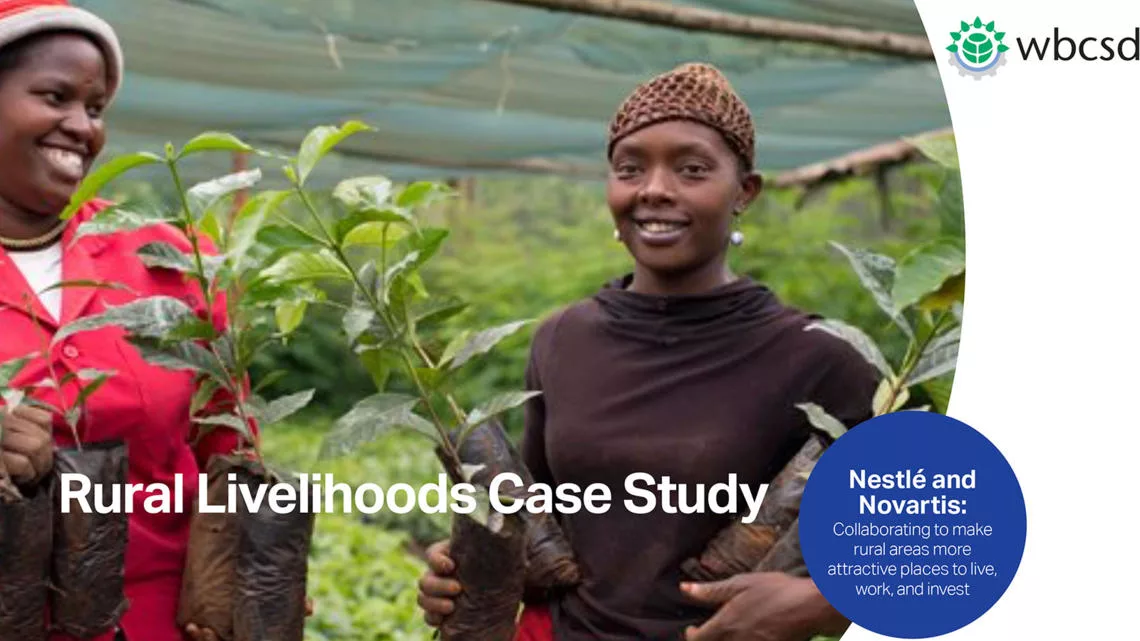WBCSD’s Rural Livelihoods Initiative brings together companies interested in rural development to discuss the potential for business-to-business collaboration. The belief is that the combined value proposition of diverse companies and value chains can ultimately make rural areas more attractive places to work, live and invest in.
When Nestlé called for other WBCSD members to help them tackle challenges of access to healthcare, water, finance, energy, and other needs, Novartis answered the call. Working with Nestlé in Kenya, they rolled out their “Healthy Family” program in coffee-growing communities to strengthen health systems and increase health literacy and awareness, thus helping to improve quality of life and increase productivity in the targeted areas.
A recently released case study shares the experiences of the cross-industry collaboration between Nestlé and Novartis, and shows that business-to-business collaboration can make a real difference in the livelihood of rural communities in a holistic and sustainable way.
The key takeaways of the study highlight the necessity of a strong business case for each company that is involved; the importance of solid data, from baseline to performance management; and the need to strike a viable balance between costs, complexity and value creation. Rural development is a complex challenge with no single solution. A spirit of exploration, learning and exchange is essential to successful collaboration in this space.
WBCSD strongly believes there is untapped potential for more business-to-business collaboration, and is keen to support expanding or replicating this model of partnership. Don’t hesitate to contact us to express your interest or share your ideas.
For further information see the Rural Livelihoods Initiative
WBCSD contact point: Davide Fiedler, Manager, Social Impact – fiedler@wbcsd.org

